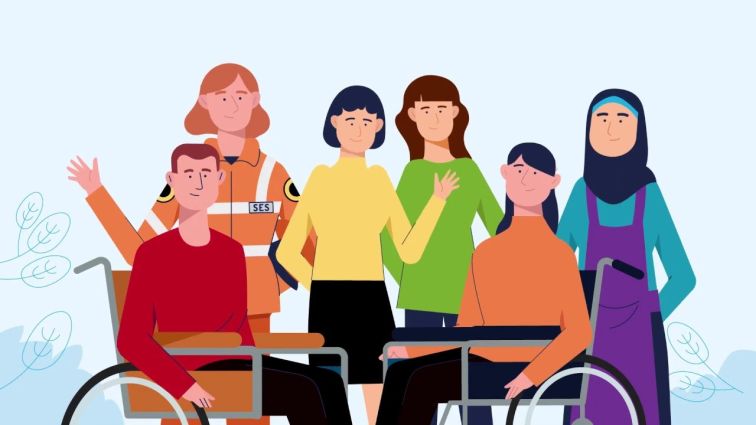Benefits of volunteering
Millions of people volunteer their time in NSW which benefits communities, people in need, not-for-profit and community organisations as well as the volunteers themselves.
Volunteering is activity that has many benefits, for you and the community.
Almost 5 million people in NSW volunteer, contributing more than 1.5 billion hours which is valued at approximately $127 billion.
Research reveals that volunteering also benefits volunteers by reducing symptoms of depression, improving self-reported health and lowering mortality.
Volunteering expands people’s social networks, provides opportunities to gain valuable experience, and enables people to develop new skills which can lead to employment
Reasons to volunteer

Why be a volunteer?
Volunteering not only helps organisations but also allows individuals to:
- develop new skills, gain experience and have a chance to use those skills
- have a sense of purpose
- give back and make a difference
- get out and have fun.
Volunteering can be done face-to-face at a location near you or it can be done online. It can be done on a regular basis, or occasionally, such as at a large event or gathering.
Volunteering can be flexible to suit your availability.
There are many reasons people volunteer, such as:
- connecting with other people
- supporting important causes or creating social impact
- learning about different cultures
- giving back to communities, organisations and not-for-profits
- finding pathways to job, study or training opportunities
- developing new skills or getting experience to improve employment opportunities.
Defining volunteering
Volunteering Australia defines volunteering as time willingly given for the common good and without financial gain.
There are 3 additional criteria which must be fulfilled for an activity to be considered volunteering:
- Volunteering must not be exploitative or be used in place of paid employment – volunteers must willingly give their time.
- Volunteering must be for the common good, directly or indirectly benefitting people outside the family or household or benefit a cause.
- There should be no financial gain, excluding reimbursement or the good practice of a volunteer being recognised or rewarded.
Finding the right volunteering role for you
Regardless of background, skills, experience or the amount of time you have for volunteering, there are different roles to suit everyone.
The first step to get ready is to think about:
- the type of volunteering you would like to do
- your interests and passions, and the types of organisations you'd like to volunteer with
- what you hope to get from the volunteer experience
- how much time you give as a volunteer
- how regularly you want to volunteer, for example one-off, weekly or monthly.
Getting started with volunteering
There are many ways to find a place or organisation to volunteer, including:
- Ask your friends and family what they do
- Local council websites often have a community directory, and many also run a range of volunteering programs
- Use the NSW Volunteering Recruitment Portal to find something suitable
- Search and contact organisations or causes you are interested in, many list available opportunities on their websites
- Explore volunteering opportunities with your local emergency services such as the NSW State Emergency Service or Rural Fire service.
Health benefits of volunteering
Volunteering in the community creates opportunities for social interaction, improves mood and increases happiness.
Volunteering offers people health and wellbeing benefits, including lower symptoms of depression and anxiety than people who don’t volunteer.
Volunteering not only benefits the community but also builds something called social capital. This is the value you get from trust and community connections built on a shared set of values.
Through volunteering, people build stronger relationships, learn from each other, and feel more connected to their community.
Read the evidence of health benefits of volunteering on the Volunteering Australia website.